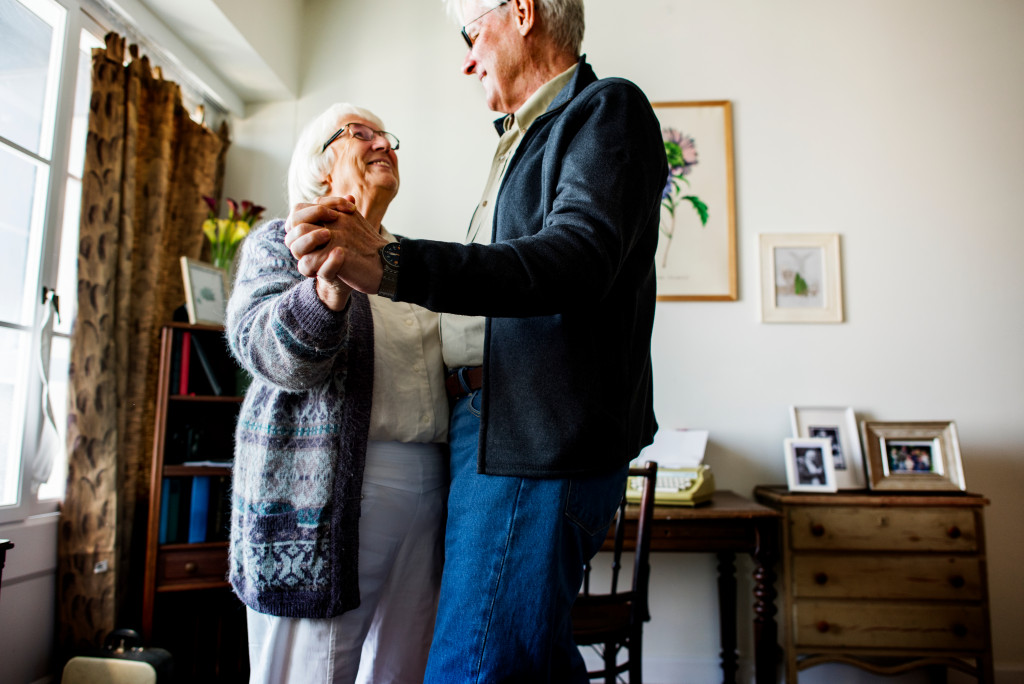Disclaimer: This website provides health information for educational purposes only and is not a substitute for professional medical advice, diagnosis, or treatment. Always seek the guidance of a qualified healthcare provider with any questions you may have.
Here’s some dose of reality for you: just because you’re old doesn’t mean you’re spared from weight problems. They will continue to hound us even when we’re already in our geriatric years.
But just as around 40 percent of people over 50 become obese, 25 percent are likely to experience unintentional weight loss. It could happen for many reasons:
1. Changes in Appetite
Aging affects your taste buds – literally. Studies suggest that the number of taste buds decreases by the time you hit 40. Others will shrink. When you reach your sixties, your ability to taste sweetness and saltiness will change.
What does this mean to your appetite? Two things: you might end up eating more salty and sweet food to satisfy your cravings, or you lack the appetite to eat because food now tastes bland.
2. Chronic Diseases
One of the strongest risk factors for chronic diseases is aging, and that’s understandable. First, the body isn’t a machine. DNA will eventually get damaged at some point, and the immune system declines.
Second, as more people live longer, the chances of developing diseases also increase. There’s more time for the body to experience a natural breakdown.
Third, many chronic diseases affect appetite, digestion, and the ability to absorb nutrients. Diseases like cancer, dementia, and heart disease can cause unintentional weight loss.
3. Mental Health Problems
Older people are not immune to mental health problems. For example, up to 5 percent of their population could develop depression, according to the CDC. Around 14 percent of them will require home healthcare or support from an assisted-living facility.
Many studies associate mental health issues with changes in eating and sleeping patterns, alcohol and drug abuse, and social isolation, all of which can lead to unintentional weight loss.
4. Lack of Mobility
Aging also brings physical changes that make it harder to be physically active. You’re not as fast or as strong as you used to be. You might find it tiring to walk up the stairs or lack the mobility to drive yourself to a store and get some food. You might even have health problems that limit your movement that you cannot hold your spoon properly.
Sleeping also gets disrupted if you have to use the bathroom many times at night because of your poor bladder control (if you suffer from an overactive bladder, it’s another story).
Keep in mind that weight loss and gain can be caused by a combination of factors, not just one. If you find yourself losing too much weight without trying, consult your doctor. It might be time to adjust your diet or treat an underlying condition.
5. Poor Nutrition
Aging also affects the ability to absorb nutrients from food. The digestive system might start to produce less stomach acid, making it hard to digest protein and other nutrients. You could become malnourished, even if you’re eating enough food.
Some older adults also develop a condition called anorexia cachexia syndrome (ACS), which causes unintentional weight loss. When this happens, the body starts to break down muscle and use it for energy because there’s not enough fat or carbohydrate to burn.
Once ACS develops, you might need a feeding tube and medical treatment to aid digestion and prevent more fat from being burned up.
6. Side Effects of Medications
More than half of Americans over the age of 65 take four medications, significantly more than their younger counterparts. For many drugs, weight loss is a common side effect.
This is because medications can alter how the body absorbs, uses, or stores energy. As a result, many older adults unintentionally lose weight while taking medications for conditions like arthritis, high blood pressure, and diabetes.
7. Dental Problems
Dental problems are also common in older adults. According to the American Dental Association, about 70 percent of people over the age of 65 have some form of tooth decay, and almost half have periodontal disease.
A poor diet and lack of oral hygiene can make dental problems worse. These problems can lead to pain, difficulty chewing, and a reluctance to eat.
8. Social and Environmental Factors
Social and environmental factors can also play a role in unintentional weight loss in older adults. For example, poverty could make it hard to access nutritious food.
The lack of safe, affordable housing can limit mobility and the ability to shop for food or prepare meals at home. These obstacles can put older adults at risk for malnutrition and unintentional weight loss.
Many reasons can cause older adults to lose weight without trying. It could be a combination of factors, such as poor nutrition, medication side effects, and health problems.
Either way, if you’re experiencing this, consult your to find out the cause. You might have a serious underlying condition that needs prompt treatment.
